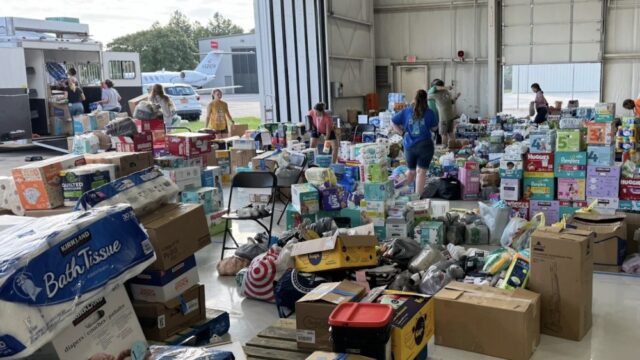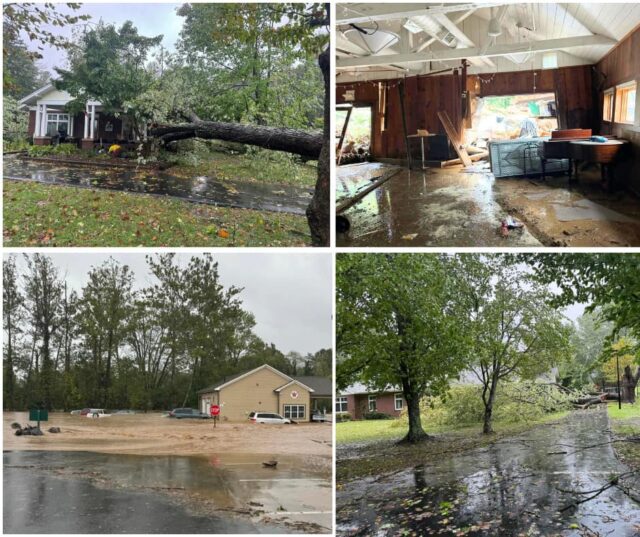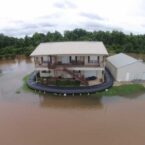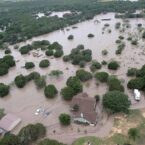As response to Hurricane Helene continues and recovery intensifies, countless local donation drives have been organized to provide donations to Western North Carolina residents in need.
“The impacts of this disaster have come into clearer focus prompting a strong desire from North Carolinians to help our neighbors in need,” North Carolina Emergency Management Director Will Ray said. “Round-the-clock operations are underway to bring these supplies to all communities that have been impacted by this storm. We are grateful that people are willing to help and encourage them to give in ways that are most useful to impacted communities and those working on the ground to help them.”
How to Donate
The best way to help Western North Carolina recover is with a monetary donation. North Carolina has established the North Carolina Disaster Relief Fund which is managed by United Way of North Carolina. Donations can be made at www.nc.gov/donate and are being used to provide grants to nonprofits working directly in impacted communities.
Other reputable charities are also collecting money to help with Helene relief, including North Carolina Volunteer Organizations Active in Disaster (www.ncvoad.org/members). VOADS are vetted disaster relief nonprofit organizations that work in coordination with state and federal agencies to deliver supplies and services to North Carolinians in need.
“Cash donations offer voluntary agencies and faith-based organizations the most flexibility to address urgently developing needs,” NC Voluntary Organizations Active in Disaster President Kristy Kulberg explained. “With cash in hand, these organizations can obtain needed resources nearer to the disaster location. This inflow of cash also pumps money back into the local economy and helps local businesses recover faster. Although the need is great, and desire to help strong, it is important to avoid donating material goods or self-deploying to help until communities are safe and public officials and disaster relief organizations have had an opportunity to assess the damage to identify what the specific unmet needs are.”
You can get tips on giving to charities safely and avoiding charity scams from the North Carolina Attorney General’s Office at ncdoj.gov/charity. Report scams at 1-877-5-NO-SCAM or ncdoj.gov.
Supplies Being Distributed to Hard-Hit Areas
Food, water and other basic necessities are being delivered to people in hard-hit communities, both by ground and by air. More than 1,000 National Guard members are deployed and working day and night to distribute lifesaving resources along with conducting search and rescue missions, clearing roads, and restoring infrastructure. More than one million pounds of supplies have been distributed by Guard members by land and air as of today.
Voluntary organizations are supporting mass feeding operations with bulk food and water deliveries. The State Emergency Response Team is also coordinating with private ground and air resources and trusted disaster relief organizations to help distribute humanitarian supplies. In addition, the Federal Emergency Management Agency has deployed more than 1,200 personnel in North Carolina to assist with recovery and relief efforts.
What About Donating and Delivering Supplies?
Individuals from outside storm damaged areas who are gathering supplies are urged to collect them but not attempt to deliver them to Western North Carolina on their own. Needs vary from area to area and may change rapidly, and uncoordinated efforts to deliver supplies can disrupt ongoing rescue and relief efforts. If you are donating supplies, make sure you are giving to a legitimate effort and watch out for scams.
Efforts are underway to establish more locations to collect donated supplies. Information will be provided as it is available.
Travel conditions remain hazardous in much of Western North Carolina and people from outside the region are asked not to drive to the area on their own. More than 400 roadways remain dangerous with many impassible and are limited to local and hurricane response traffic only. Available routes should be reserved for ongoing emergency needs including search and rescue.
Airspace is also limited due to ongoing air missions by the North Carolina National Guard. Private pilots should coordinate with Lindsay Duke at 828-851-0777 before flying humanitarian relief missions in Western North Carolina.
Volunteer Opportunities
Recovering from Hurricane Helene will be a long-term process and volunteer help will be needed for months to come. For their own safety and to be most helpful, volunteers should work through an organization and not deploy on their own. If you are interested in volunteering, you can register at nc.gov/volunteernc or www.unitedwaync.org or by contacting one of the NC VOADS (www.ncvoad.org/members).
















